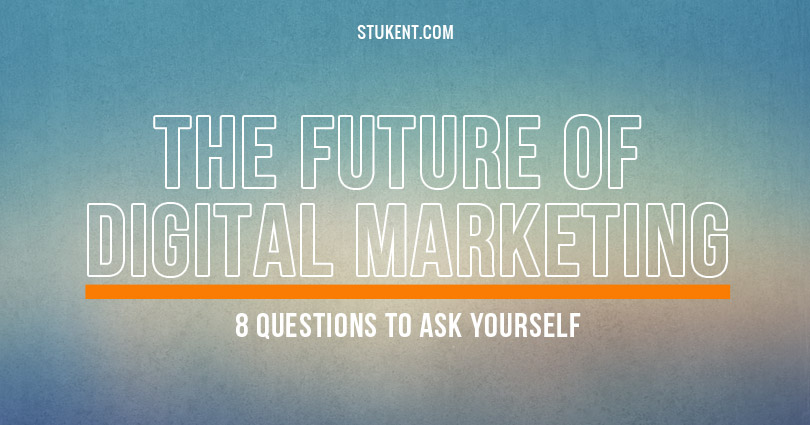All of the speakers at this year’s Midwest Digital Marketing Conference were asked to complete a survey. Here were some of my favorite questions and how I replied. You’ll have to let me know in the comments if you agree or disagree.
What’s the future of wearable tech? Will it ever become a marketing platform?
Wearable tech isn’t the future. It is the present. Phones, which are basically wearable tech because we feel naked without them, are already a marketing platform. Apple watches, Fitbits, Samsung gear, Microsoft’s watch; they’re all selling the hardware for a profit, and I am sure they will happily profit from their hardware and native software that comes with the device as a marketing platform during 2016.
What does “content” mean to you?
Content is not just marketing material, but all of the messaging from an organization. Everything from the customer support guide and video tutorials, to the print labels on product packaging, to the blog posts on a website.
What is the most valuable digital tactic for small business owners?
Focus. There are so many things a small business can and should do. Trying to do too many things will make you look not very good at any of your digital marketing efforts. Quick example: managing too many social media platforms. Pick the one you can use and support well and that will allow you to connect best with your customers.
What is the digital “word of the year” for 2016?
Programmatic. Why you ask? Because it will improve so much and search engines are finding more ways to take value away from organic ranking and traffic (see Google’s recent move to 4 ads above the SERP pushing organic below the fold).
What are your top 3 digital metrics?
Profits, Conversions, Traffic. In that order of importance.
As everything moves to mobile and social, it seems like the web is dying. Should we still care about the web?
Silly question. Yes. You should still care about the web until the billions of desktop users entirely stop using their desktop. 🙂
Marketing as a discipline seems challenged as organizations move away from silos. What kind of coursework should one pursue a career in marketing? Do you believe the discipline of marketing will be blended into other academic pursuits (i.e. entrepreneurship, business, leadership)
I am passionate about this topic because I have co-authored Internet Marketing Essentials, a digital textbook used by tens of thousands of students across the globe in two languages and in over 500 universities.
As the technology and marketing platforms evolve, the coursework and the instructors have to keep up. Digital texts that can be updated each semester along with authors willing to take time for frequent updating is the solution for that.
The coursework must include, hands-on, experiential learning projects. Marketing simulations are one solution for that. My company offers a digital marketing simulation.
Video is a big part of coursework now as well. Getting knowledge from professors and texts is great, but better when you can also get video content from industry experts.
Marketing as a discipline in a small business of 10 employees or less is often done by leaders in the company wearing multiple hats. In that case, all of the well-round, high-level business classes are very important.
Marketing in medium and large businesses has whole teams that complete marketing-specific skills that other teams don’t have the competency, time or authorization to complete. In those cases, the marketing specific courses are more important and necessary, but the high-level business classes are still valuable and important.
What do you see as the next big disruption in the world of marketing and communications?
Cross-platform, continuous ad targeting and messaging. The companies that figure out how to continue the digital message everywhere will win. From your phone to your watch to your tablet to your car to your desktop to your TV to your app to your smart home system to your weight scale in the bathroom to your Amazon Echo. Cross-platform advertising will disrupt the market, disrupt us as human beings, and disrupt the way business is done.






